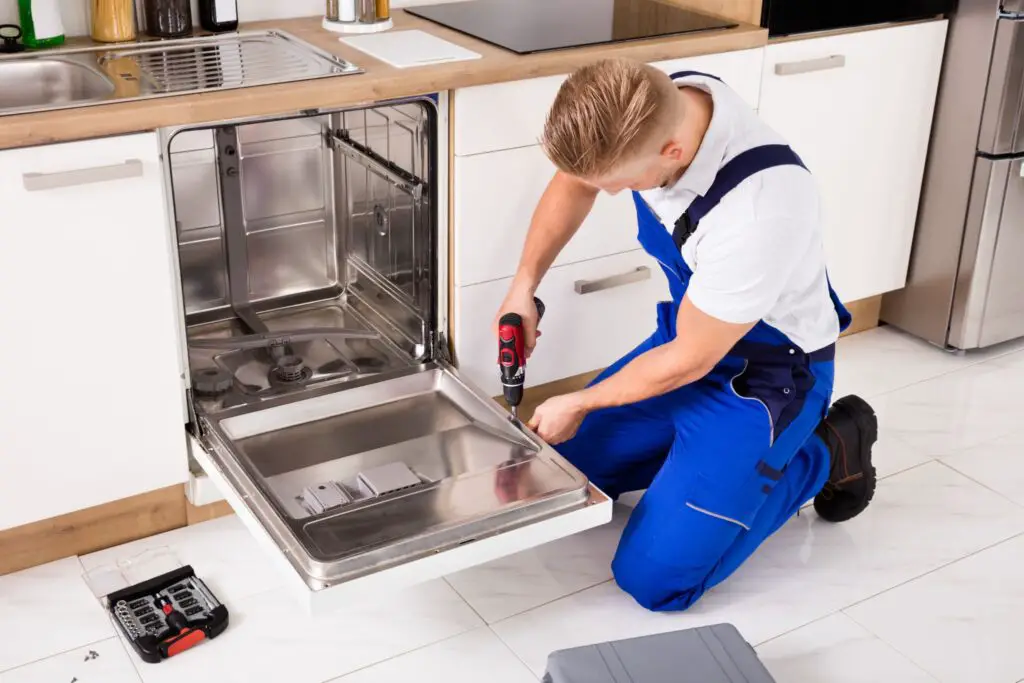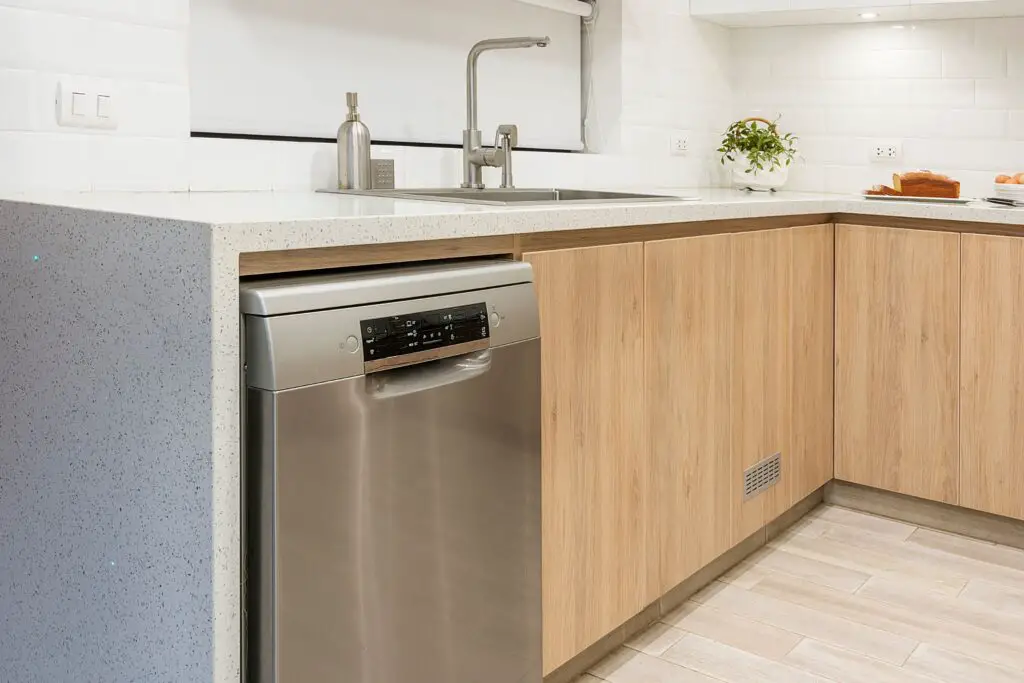Originally Created on: March 29, 2023 @ 10:03 am
How do countertop dishwashers hook up? Full-size dishwashers come with many features and functionalities.
However, when placing dishes inside the dishwasher, you’ve to bend which can lead to pain in your lower back. Thankfully, we now have portable or countertop dishwashers.
Unlike full-size models, you can position them on the kitchen countertop, work desk, cupboard, or on other kitchen appliances. This saves you all the bending and leaning that comes with running a full-size dishwasher.
In addition, you get to save on water and electricity plus keep your dishes clean. Interested in buying a portable or countertop dishwasher? Want to know how to hook up the dishwasher?
Also Read: Can I Use Soap Pods in a Countertop Dishwasher [+ 3 BEST Tips]
Table of Content
How Do Countertop Dishwashers Hook Up?
It’s easy to hook up a countertop dishwasher. All you need is a unique fitting called a unicouple. This allows you to connect the countertop dishwasher to your sink faucet.
One thing to remember is that your countertop dishwasher should be close to connecting to a water faucet while the outlet hose connects to the sink.
For this to work, your faucet should have a threaded spout. If you don’t have the threaded spout, you can add a faucet adapter to help you make the connection.
Once you have the threaded spout, attach the inlet hose and the drain hose then plug the dishwasher in.
Turn on the hot water and start the dishwashing cycle. The hoses connect easily and quickly, no tools are needed.
Can You Permanently Hook up a Countertop Dishwasher?

You can permanently hook up a countertop dishwasher. All you need to use is a very large diameter bathroom shower drain pipe or kitchen sink drain pipe.
Most of these pipes comprise of stainless steel, a metal that’s corrosion and rust-resistant. Such pipes have a diameter of 16 inches and should be filled with water before you add the dishwasher.
You should also make sure that the dishwasher is within a foot or two of the pipe. You can use the dishwasher’s old drain hose for plumbing your new one. Just make sure that you do not mix the hoses.
To be safe, install a shut-off valve onto the bathroom shower or kitchen sink drainpipe. This will ensure you don’t flood your house when you forget to turn off the dishwasher.
Where Do You Hook up a Portable Dishwasher?

People hook up their dishwashers to the kitchen faucet. This is because the dishwasher will be near the sink where you can also hook it up to the kitchen drain pipe. This allows the unclean water to drain during and after the wash cycle.
Generally, people hook up a portable dishwasher to the kitchen faucet via its hose assembly.
Portable dishwashers work with pull-out faucets but if you have a new one, you need to connect your faucet adapter.
How Do Countertop Dishwashers Get Water?
Portable dishwashers usually need a fresh water supply for cleaning the dishes and a route to drain the dirty, used water.
While they do need a water supply and a drainage route, portable dishwashers do not require the same type of plumbing similar to the one for full-size dishwashers.
During installation, hook up your portable dishwasher to the kitchen faucet. The hose connector that attaches to your faucet adapter has two hoses.
One of the hoses supplies hot water from your kitchen faucet into your dishwasher. The other discharges the unclean, used water into your kitchen sink.
You May Also Like: How Do Countertop Dishwashers Drain [The SURPRISING Answer]
Can You Connect a Portable Dishwasher to a Sink?

Portable or countertop dishwashers can connect to your kitchen sink faucet or sink temporarily. For this to work, especially the inline hose, you must have a threaded faucet spout. Faucets with built-in sprayers do not have a threaded faucet spout
You can buy a faucet adapter that will allow you to make a connection with your kitchen faucet. Remember, never connect your portable dishwasher to a pull-down or a pull-out kitchen faucet.
This is because of potential pressure fluctuations during operations that may cause the hose to rupture.
Conclusion
Portable or countertop dishwashers are appropriate for homes with limited room. This is because such dishwashers do not take up space, unlike full-size models.
You can place them on other household appliances, on your kitchen countertop, on cupboards, or even on work desks.
While they’re space-saving, they have the same functionality and performance as under-counter models.
In addition, portable dishwashers are economical, and you can enjoy the water and electricity-saving features in your home or on the go.
Portable or countertop dishwashers are easy to install. In fact, you can do so without any tools. Just connect the inline hose to the kitchen faucet and the outlet hose to your kitchen sink. That’s it.

![How Do Countertop Dishwashers Hook Up [The ULTIMATE Answer]](https://mykitchenapex.com/wp-content/uploads/2023/03/How-Do-Countertop-Dishwashers-Hook-Up-The-ULTIMATE-Truth.jpg)